Lanye Armon didn’t cry at all while watching a livestream of their friend O’Shae Sibley’s funeral.
“I put on a brave face for all of my friends who were there and all of the Black LGBTQ2S+ community who don’t know how to deal with the bittersweet feeling of emotional detachment,” Armon tells Xtra.
But later that night at Stand Up NYC, Armon broke down on stage while performing in honour of Sibley.
“I couldn’t hold it anymore; I felt for my friend,” they say. “My friend lost his life because he was gay, because he wanted to dance.”
Sibley, a 28-year-old professional dancer, was killed at a Brooklyn gas station on his way home from a friend’s birthday celebration at the Jersey Shore on July 29. Sibley and friends were laughing and vogueing to Beyoncé’s Renaissance album while refuelling when a group of teenagers began hurling homophobic and anti-Black slurs at them. Security footage shows Sibley confronting them before he was stabbed by Dmitry Popov. The 17-year-old, who is being charged as an adult, pleaded not guilty to murder as a hate crime.
Sibley’s killing has mobilized New York City’s queer nightlife community to fight back against anti-LGBTQ2S+ violence. Armon was one of over 40 performers and DJs who came together on Aug. 8 to put on Stand Up NYC, an emergency response benefit, at Brooklyn’s 3 Dollar Bill, a queer nightclub.
The event raised money for Sibley’s memorial funds, as well as to support the families of DeAndre Matthews and Mary Mora. Matthews was a gay Black 19-year-old whose body was found on Feb. 7 in Midwood, the same Brooklyn neighbourhood where Sibley was killed. Mary Mora, a trans woman of colour from the Bronx, was found deceased at her home under suspicious circumstances last month.
Proceeds will also be donated to the Anti-Violence Project, the largest LGBTQ2S+ violence prevention organization in the U.S.
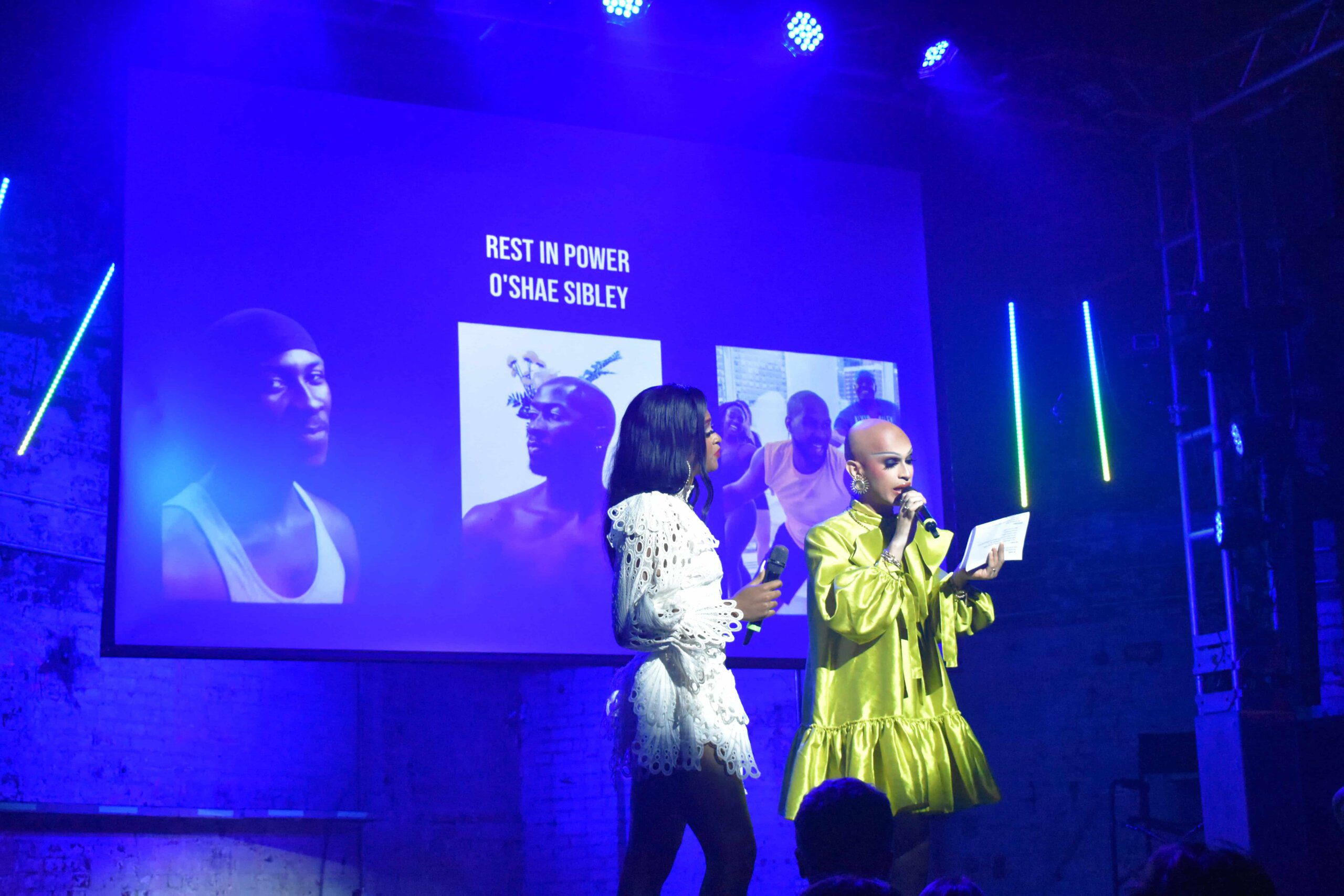
Event organizer Julie J (right) and co-host Mariyea (left). Credit: Jill Webb/Xtra
Julie J, a drag queen and the event’s co-organizer, says she went on autopilot to pull the benefit together as quickly as possible after Sibley’s death. “It’s an emergency and we have to treat it like one,” she says.
This isn’t Julie J’s first time throwing a Stand Up NYC benefit. Her Pride event collected almost $40,000 for groups uplifting and protecting trans people. In March, Stand Up NYC raised over $25,000 for the ACLU of Tennessee, Black Trans Liberation and the Trans Formations Project in response to Tennessee’s anti-trans and anti-drag legislation. “What I love about the Brooklyn nightlife community and the Brooklyn performance community is that when we need to come together, we do,” Julie J says.
Robin Rose Quartz, a drag queen at the memorial event, agrees. “When we are in danger or there is an imminent threat, we are the first people to come together and push back and fight back against hateful rhetoric, misinformation, disease—anything like that,” Rose Quartz says.
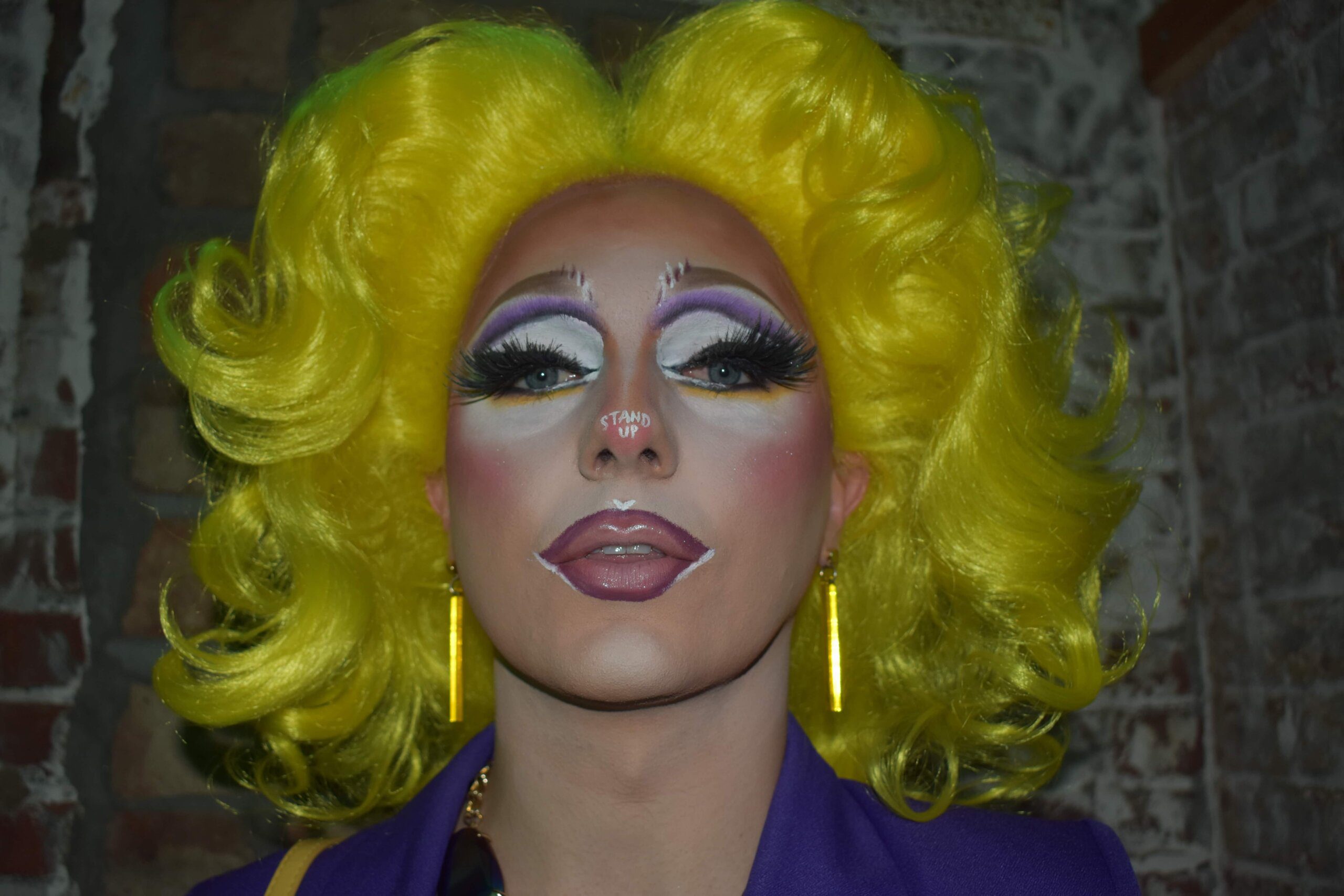
Drag queen Robin Rose Quartz. Credit: Jill Webb/Xtra
Audacia Ray, the director of community organizing and public advocacy for the Anti-Violence Project, says gatherings like this help with coping at the community level.
“It’s important to have these events because when a member of our community is violently murdered or harmed, it shifts from being about that individual into a kind of like community ownership and community understanding of what is out there for us,” Ray says.
There were palpable feelings of anger and sadness in the crowd. “All those emotions, you can kind of sense them in the room,” Paloma, one of the night’s performers, says.
The queer nightlife scene feels tight, even in a big city like New York, she says. “I feel like that’s why it hits us harder all as a collective because you never know who could be next.”
On stage, some performers worked grief, rage and loss into their performances. Armon donned a bodysuit with “Black Lives Matter” adorned across the chest. They performed “Stand Up” by Cynthia Erivo, a song from the soundtrack of Harriet about Harriet Tubman’s fight for Black people’s freedom.
“Though it may be an LGBTQ2S+ issue, it’s a Black issue,” Armon says.
Being able to mourn and celebrate a fellow performer through their own art was cathartic for many who took the stage. “I talk about liberation a lot in the work that I do and how performance is a form of us getting closer and closer to our collective liberation,” says Julie J.
Armon’s friendship with Sibley began when the dancer attended one of Armon’s performances. “It was only right that I celebrated him in drag—the way he met me,” Armon says.
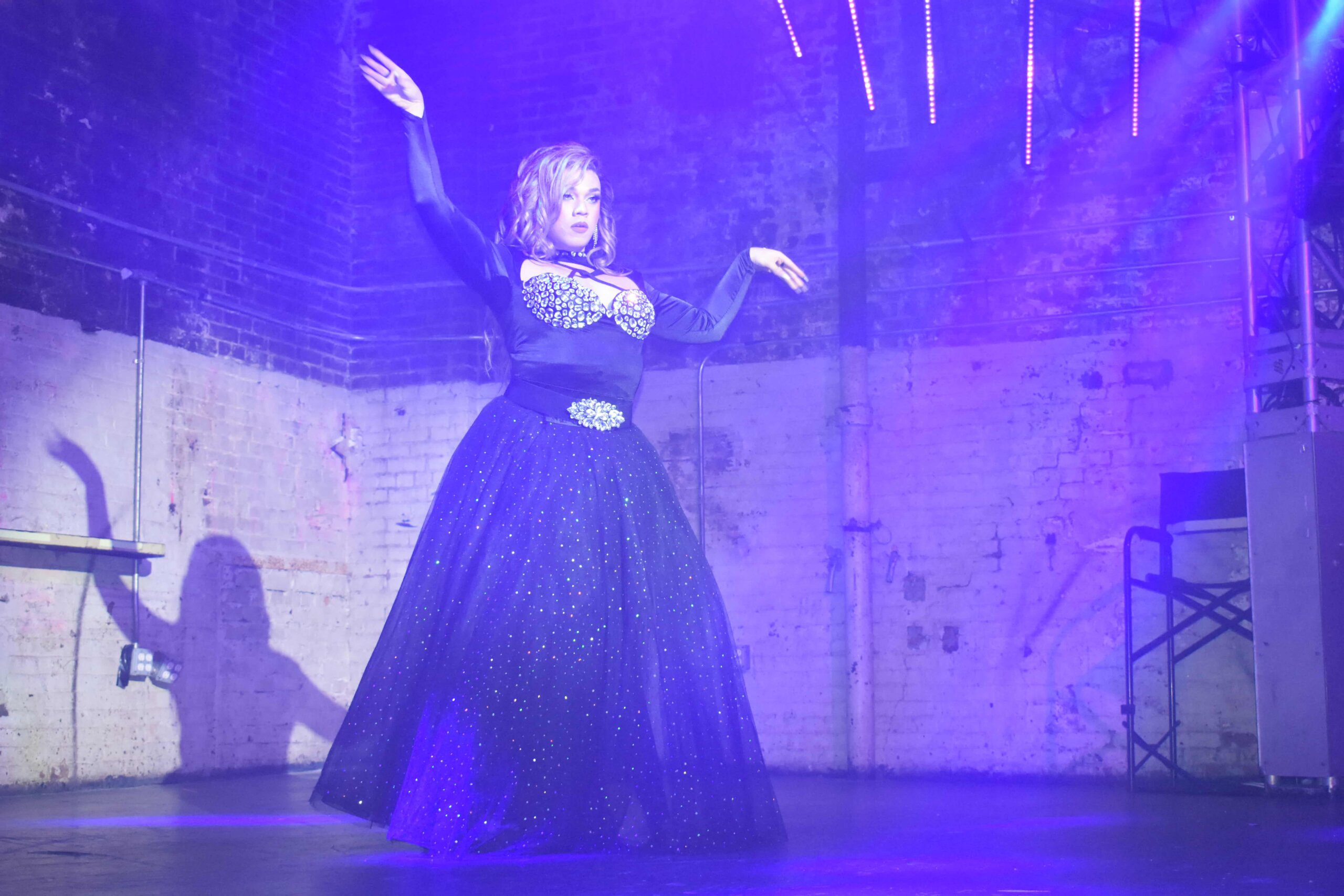
Brooklyn drag queen Spindarella. Credit: Jill Webb/Xtra
Drag queen Spindarella, a Brooklyn native, incorporated voguing—a style of dance birthed in Black queer ballrooms—into their act, representing Sibley’s final moments. “I grew up voguing on the pier, voguing in the train, voguing just walking down the street,” Spindarella says. “It’s an expression of joy.”
For New York’s queer community—especially for queer people of colour—the threat of violence suddenly feels very close to home. Drag queen Megami lives three blocks away from the gas station where Sibley was killed. “It was just like a terrifying wake-up call,” Megami says.
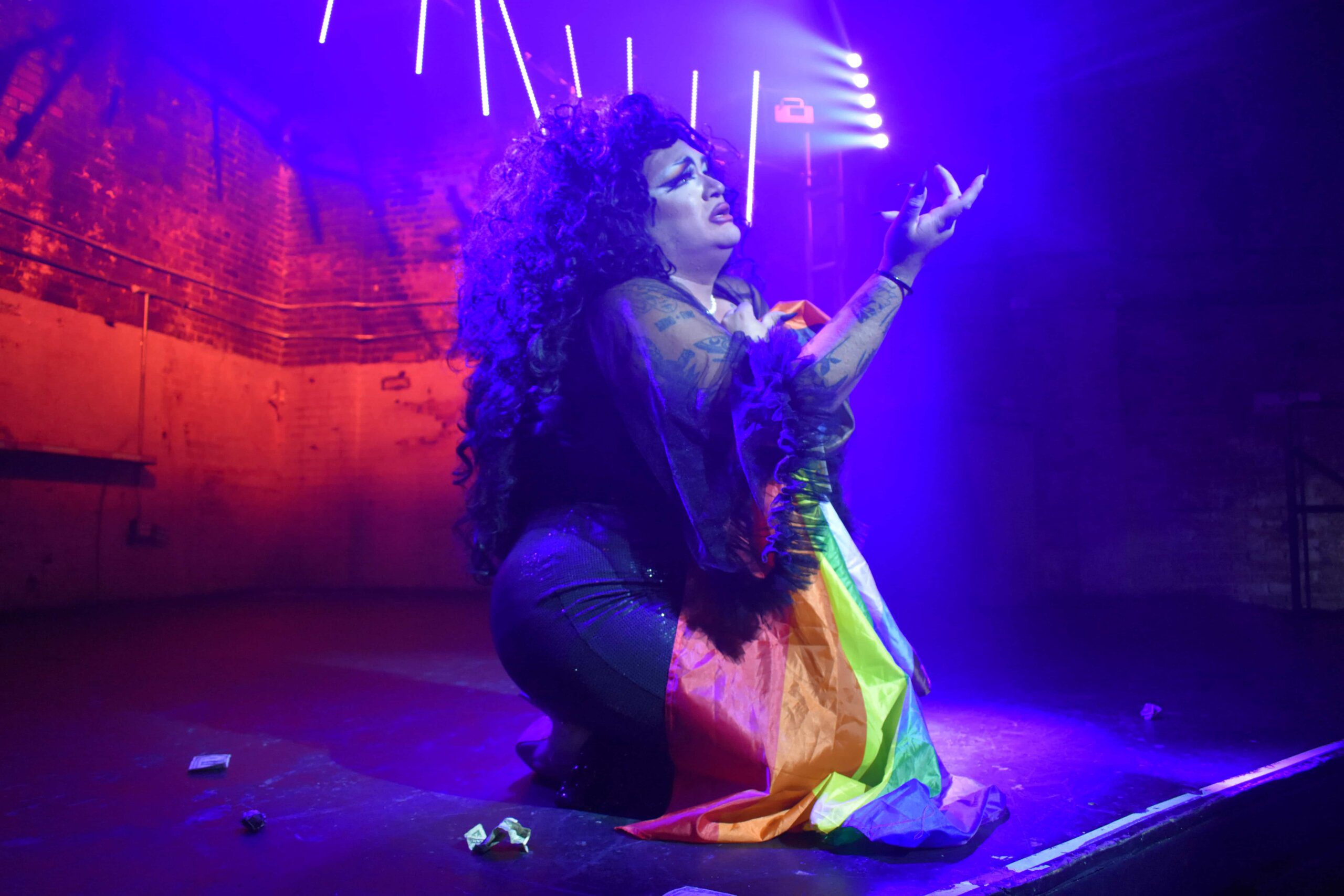
Drag queen Megami performs. Credit: Jill Webb/Xtra
New York City has historically been touted as a place of acceptance, but recent events paint a more complicated picture. “We really have to take into account that these things can happen in our communities at any point in time,” Julie J says.
On Aug. 1, the Anti-Violence Project issued a community alert for New York City’s LGBTQ2S+ community in response to an uptick of violence toward queer people over the last six months. Police have tracked at least 45 anti-LGBTQ2S+ incidents, including at least three homicides, across New York City so far in 2023. Based on calls to the Anti-Violence Project’s hotline, Ray estimates that number should be two to three times higher.
“People also call the AVP hotline to report violence that they have not reported to the police and may never report to the police,” they say. “We usually see higher numbers of folks calling the hotline than folks actually reporting to the police.”
Ray emphasizes the significance of seeing normal scenarios—like going to the beach—turn deadly for those who are queer and trans. “It has a really profound effect on how people feel moving through the city,” Ray says.
That resonates with Paloma. She’s cognizant of her surroundings, whether in drag or not, she says. “[I’m] always mindful of myself on the train, going to a store, because I never know how people are going to perceive me,” she says.
A 2022 Anti-Violence Project report found three out of five LGBTQ2S+ businesses surveyed had experienced some type of homophobic or transphobic harassment or violence that year. “A majority of them said that the groups that were protesting them were explicitly aligned with white supremacist groups,” Ray says. “That’s something that’s definitely shifted in the past couple of years.”
It’s not lost on many that Sibley was killed for dancing to Renaissance, while just miles away, tens of thousands of fans were celebrating as Beyoncé performed that very album at MetLife Stadium. Beyoncé has said Renaissance was inspired by her Uncle Johnny—a Black gay man—and is an ode to queer culture. In the aftermath of Sibley’s murder, Beyoncé posted a tribute to him on her website.
“This album has meant so much to the community,” Megami says. “It kind of hurt a little that an expression of our joy is something that inspires violence in other people.”
Many attendees felt frustrated that as queer-inspired art receives high praise, the same level of respect isn’t given to queer individuals. “It’s kind of unfair that you have gay people providing all of these things to the non-gay world,” Paloma says. “And what we’re receiving is hatred and a lack of protection.”
Patrons at Stand Up NYC are hoping for more allies to speak up in solidarity. “It has to be bigger than just us,” Orian Polanco, an attendee, says. Many are calling for more financial support from those in positions of power. “All of us, we have nothing,” Spindarella said. “We’re passing around the same 20 dollars to each other.”
Julie J wants the government to adequately address violence targeting queer individuals. “We’re funding with our tax dollars these institutions that are not serving us the way that they should be,” she says.
The Anti-Violence Project encourages queer individuals to become familiar with its resources to keep themselves safe. “One of the main reasons that people call the hotline is to do safety planning,” Ray says.
Recommended tips from the Anti-Violence Project include checking in with trustworthy folks about daily activities. That could mean letting chosen family know when to expect you home after a date.
“It’s really important to balance personal safety tips with the knowledge that we, as queer people, cannot be put in this victim-blaming situation of having to fix and prevent violence,” Ray says.
While many remain cautious, they are not willing to sacrifice their authentic selves. For Jax, a season 15 RuPaul’s Drag Race contestant, that means practising duckwalks and catwalks in front of everyone at the gym. “I’m not gonna go into the dance room and keep this to myself,” Jax says. “This is my workout. I’m gonna be visible in front of y’all the way that y’all are just grunting in front of me.”
Visibility is why local events, like Stand Up NYC, are so tethered to the fight against queer violence.
“When we perform, we’re kind of blossoming through the concrete, right?” Julie J says. “If enough of us are together in one place blossoming at once, we’re showing the rest of the world that we’re not going anywhere and that we’ve been here for all of time,” she says. “And we’ll continue to be here for all of time.”
As for Armon, she says it’s her duty to keep saying Sibley’s name out loud. “What I want people to know is that O’Shae may have left the body, but his soul moves through every Black, queer, trans, gay, non-binary person that walks this earth.”
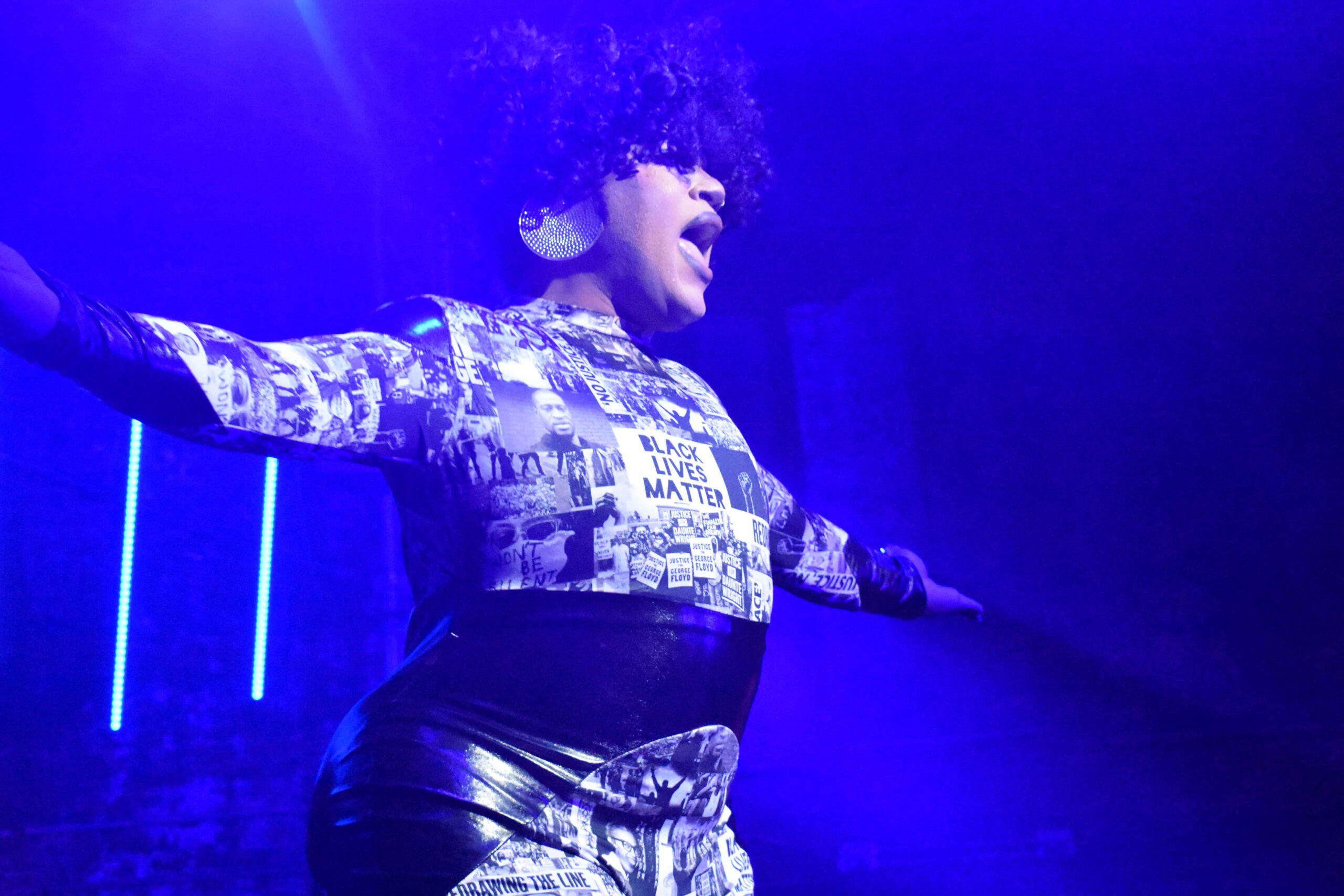
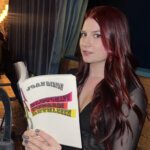
 Why you can trust Xtra
Why you can trust Xtra


